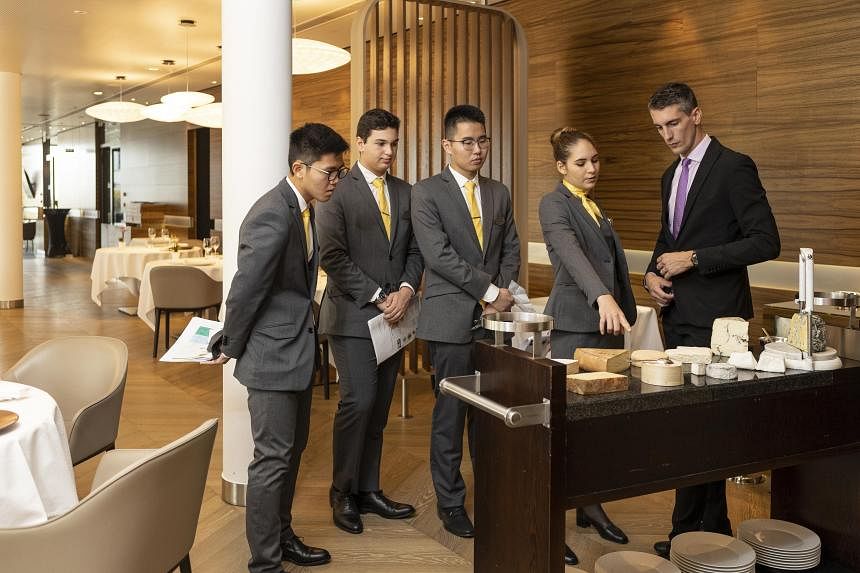LAUSANNE – Born in Singapore and raised in Taiwan, Ms Juliet Ho is a poised student in a Swiss university with a global outlook.
She is among 125 nationalities at the multicultural EHL Hospitality Business School who are intent on pursuing an international career in domains as diverse as hospitality, private banking and government.
“EHL is very international. It is a platform to create networks around the world,’’ says Ms Ho, a Singaporean final-year hospitality management student who shows The Straits Times around the school where 84 per cent of the students speak at least three languages.
A good number are third-culture kids with diplomat or hotelier parents constantly on the move.
Ms Ho, 22, graduated in July and is set to be a management trainee at the Mandarin Oriental in Singapore.
Young people like her, sophisticated beyond their years and all perfectly groomed, are trained in the top-ranked school to be future hoteliers and business leaders who are culturally agile and future-ready.
In 2023, for the fifth year in a row, EHL, which also has a new Singapore campus in Lady Hill Road, was ranked the world’s best hotel management school by QS World University Rankings for Hospitality and Leisure Management.
During a visit to the sleek Lausanne campus, student ambassador Ms Ho, her peers and faculty members showcase what is distinctive about the school, including its one-Michelin-starred training restaurant Le Berceau des Sens.
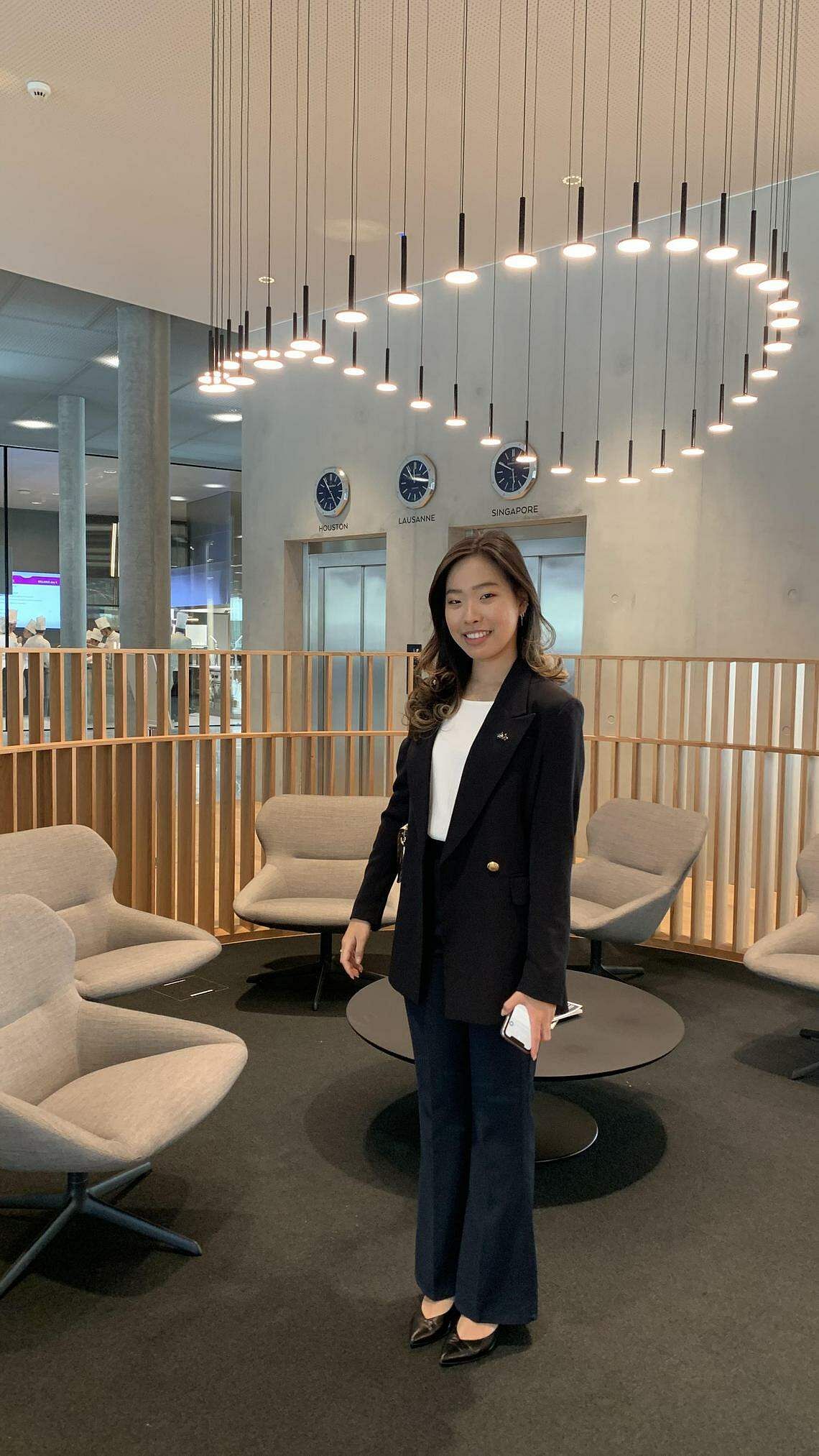
Also notable is the new “no-walls” campus designed by students for students.
Topped by a glass roof and filled with public spaces, the infrastructure encourages open minds and spontaneous exchanges, which are desirable in the training of the EHL student.
Significantly, too, the school forges links with global companies such as French conglomerate LVMH and Swiss International Air Lines for internships and partnerships.
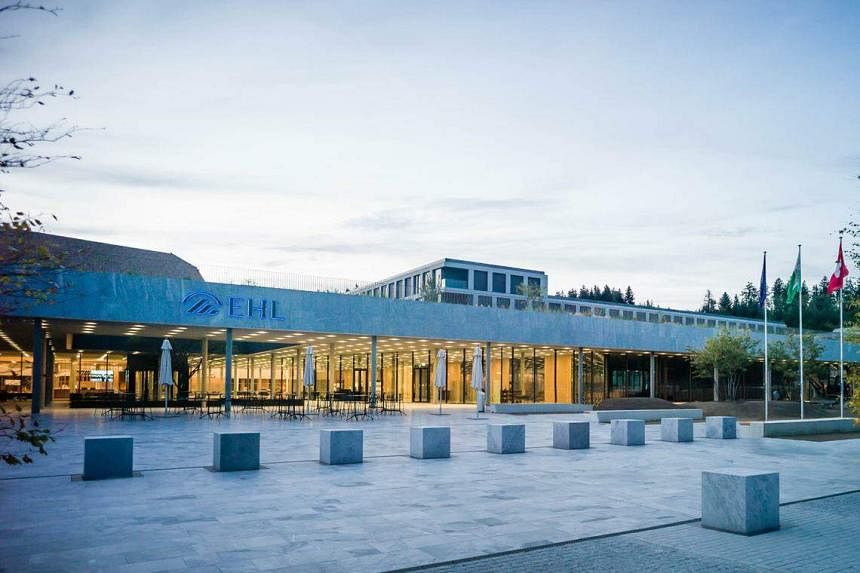
EHL is also recognised for its problem-solving people-centric curriculum, and this ethos is clear at the elegant Le Berceau des Sens restaurant, open to the public and perpetually booked.
At dinner, students work in synchronicity to present delicacies and interact with diners.
On my menu that evening are luscious baby squid with spinach-chorizo filling, farmed guinea fowl with a side of saffron gnocchi and a selection of mature cheeses.
The international media group which I am a part of also steps behind the scenes to observe the pre-dinner preparations at the French restaurant, where culinary veterans train a dozen students on the nuances of fine dining.
A cheese specialist from France shows how to slice and display cheese on a trolley attractively, with rinds invisible to the diner. A sommelier conveys the finer points of serving wines such as the Swiss chasselas.
Head chef Cedric Bourassin, a lecturer in practical arts who has made his mark in Japan, presides over the training kitchen, which is complete with fish, meat, pastry and other professional stations.
Being the first school globally to achieve Michelin status is an accolade that will remain in the EHL annals forever, he says.
But he emphasises: “Our priority is not the Michelin star. It’s the students.”
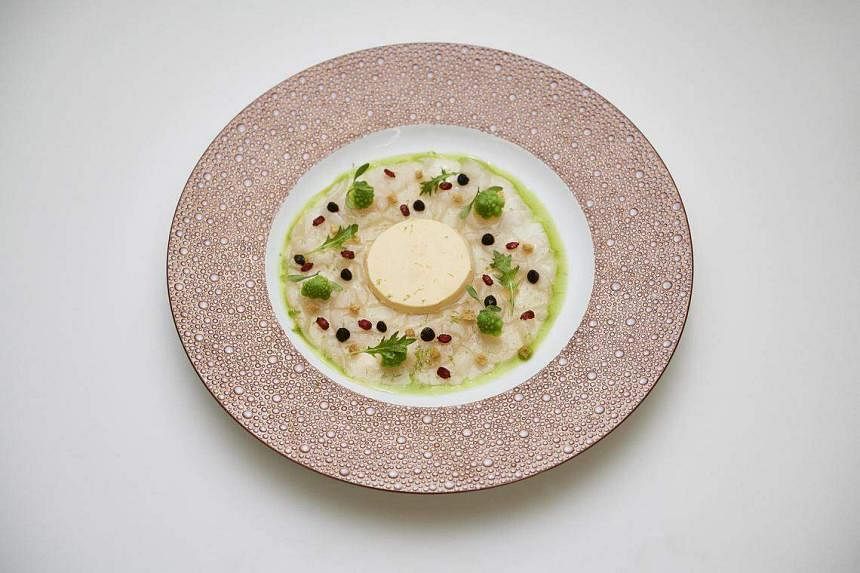
Sushi bar and jazz cafe
On campus, the school has set up a dozen food outlets – a spectrum that includes a sushi restaurant, cocktail lounge, jazz cafe, retro-modern brasserie, plant-based eatery, foodcourt and grab-and-go counter.
Students working in these outlets are immersed in real-life scenarios, as well as when they rotate through reception and rooms divisions.
They get into the trenches – making beds and bartending, for instance. They might wake up at 3am to look immaculate for early shifts.
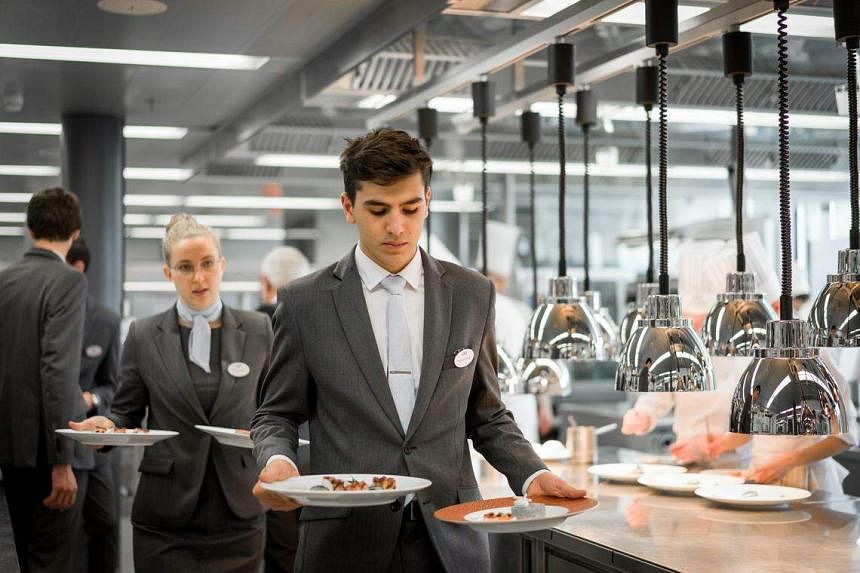
Their hands-on training in these restaurant and hotel operations takes six months, before they move on to internships for another six months. This is their preparatory year that precedes the managerial and strategic courses of their bachelor’s degree.
EHL’s programmes run the gamut from apprenticeships to master’s degrees, as well as professional and executive education. It also offers consulting and certification services to companies and learning centres globally.
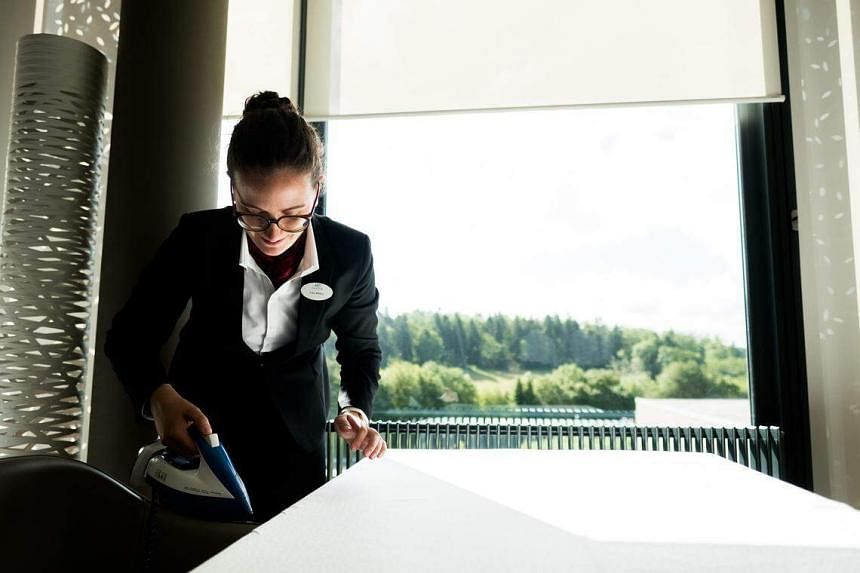
Starting as a small Swiss hotel school near ski slopes and the shores of Lake Geneva in 1893, it is now a globe-girdling group specialising in hospitality and business education.
There are 4,000 students on three campuses in Lausanne and Passugg, both in Switzerland, and in Singapore.
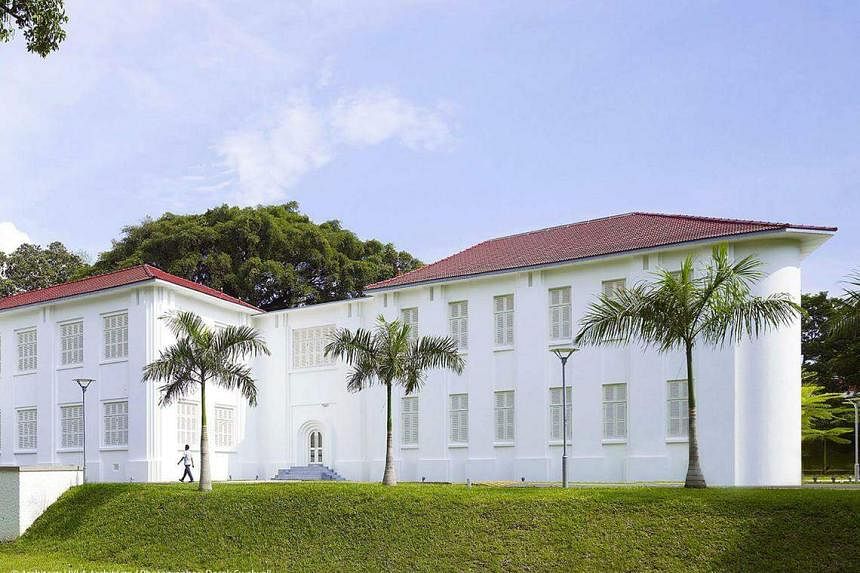
Business and fun
Its undergraduates also learn experientially when they join the proliferation of student-run groups, such as the oenology committee that arranges private wine-tasting sessions and competes in wine competitions.
At the Peter Michael Wine Laboratory on campus, the committee hosts our group.
We are guided by gracious students from France, Senegal, India and Switzerland as we explore the world of Swiss wine, each visitor seated at an illuminated station with four glasses and a wine notebook.
French student Nicolas Velin describes each wine with precision and poetry.
One high-end wine, made from the Swiss chasselas grape, is a “beautiful deep gold”. He says: “It’s not so expressive on the nose. There is a butteriness. It has umami. It can go well with sashimi.”
Impressively, each committee is run as a business by students like Mr Velin who are in their late teens and early 20s.
Their committees run the gamut of watersports and watches, entrepreneurship and philanthropy, the arts and more.
In other encounters with students, they talk animatedly about their start-ups that include a tutoring platform, a city tour bus company and a network of cloud kitchens that dishes out affordable meals for students.
Every student is polished and dresses professionally, abiding by a guide for professional appearance that runs into 15 pages.
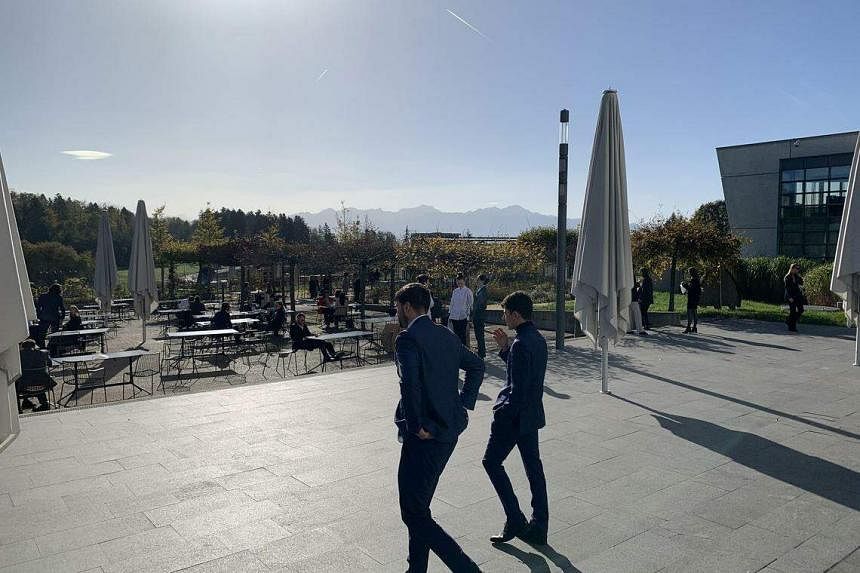
Proper and spirited
A glance at the dress code reveals that the no’s include excessive visible tattoos, unnatural hair colours such as blue or pink, and wearing sunglasses inside buildings.
The bigger picture is that appearance, attitude and behaviour are anchored in EHL values such as excellence and respect.
For all that they look very proper, the students are spirited.
Dr Ines Blal, executive dean and managing director of the school, notices that the students get on social media or hit the streets on a Friday night to push the cause of sustainability.
She says: “This generation wants to change the world.”
These prospective game-changers thrive on multiple learning modes at EHL, whether they are out on the streets, toiling in kitchens or sitting in classrooms.
That is evident at a lively seminar on hotel rebranding steered by Mr Youri Sawerschel, who belongs to a network of alumni which actively contributes to EHL and offers jobs.
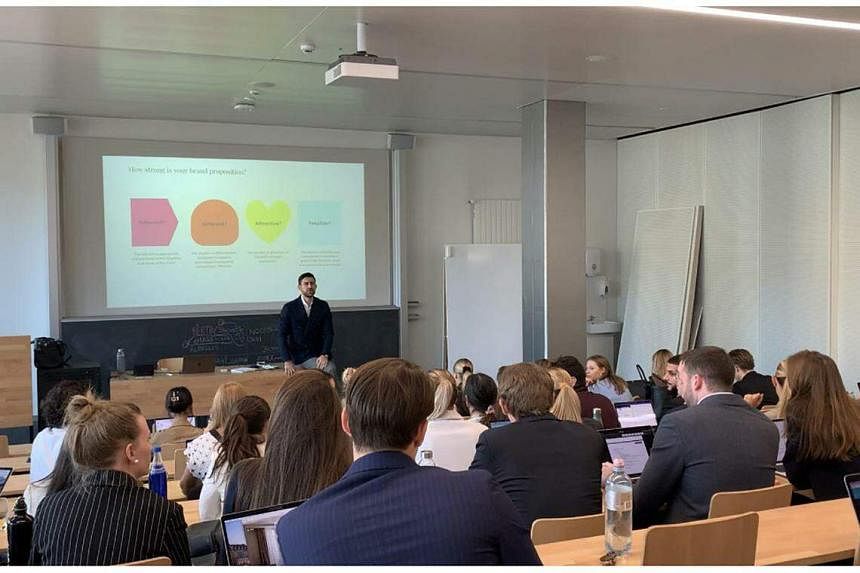
Mr Sawerschel, founder of creative consultancy Creative Supply, takes his class through a case study: the transformation of a bourgeois family-run hotel in a posh Parisian district.
His company reconceptualised the hotel as the modern Nuage.
Beyond updating the interior design, “we wanted to shift the narrative to a higher level”, he says. “The new story for Nuage is that it is a Parisian flagship for slow luxury.”
Like him, EHL alumni are often business owners and top executives.
Within the hospitality world, they helm hotels, cruise liners, and food and beverage entities.
They are found in equal numbers in non-hospitality sectors: financial services, luxury retail, health and wellness, government and public services, tech, communications and more.
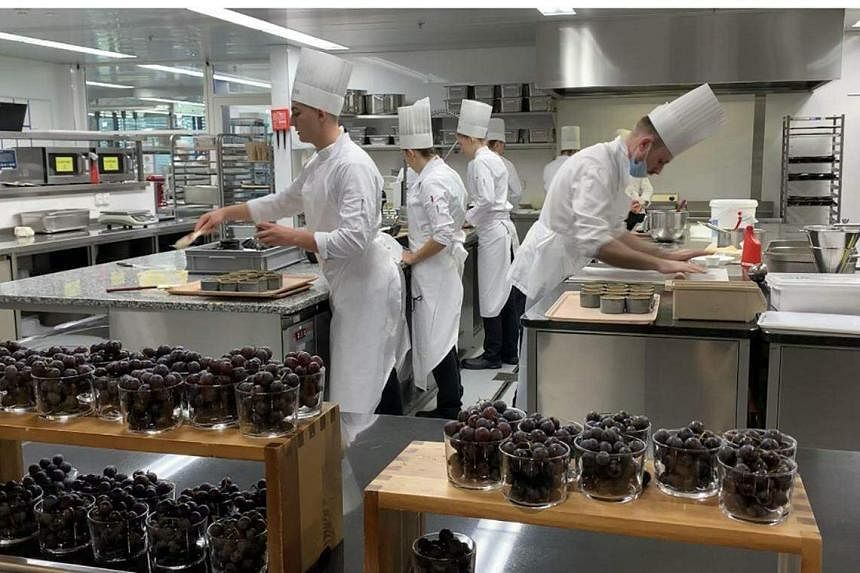
Avatar and green eggs
Employers in these non-hospitality sectors insist on hard skills but also value the soft skills instilled by EHL, according to EHL faculty members.
In this light, Dr Achim Schmitt, dean of the EHL Graduate School, says: “Soft skills are not ‘side’ elements, but fundamental.”
Soft skills encompass influence, innovation and critical thinking.
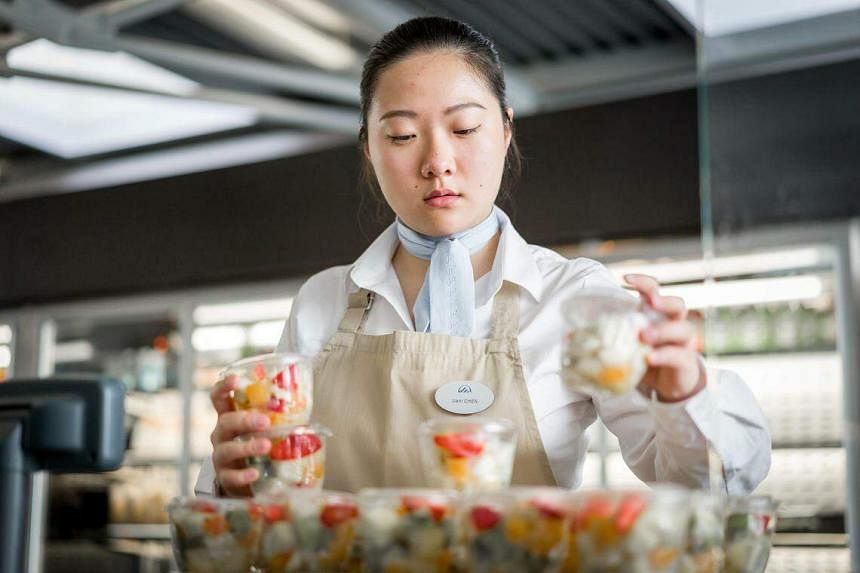
In other conversations, faculty members discuss cutting-edge topics such as “self-sovereign identity” technology that gives people control over the personal information they provide over the Internet.
Reflecting the extensive expertise at EHL, the professors also highlight on-trend topics varying from the economics of rain-harvesting in hotels to second-hand Swiss luxury watches becoming increasingly sought after by sustainability-minded buyers.
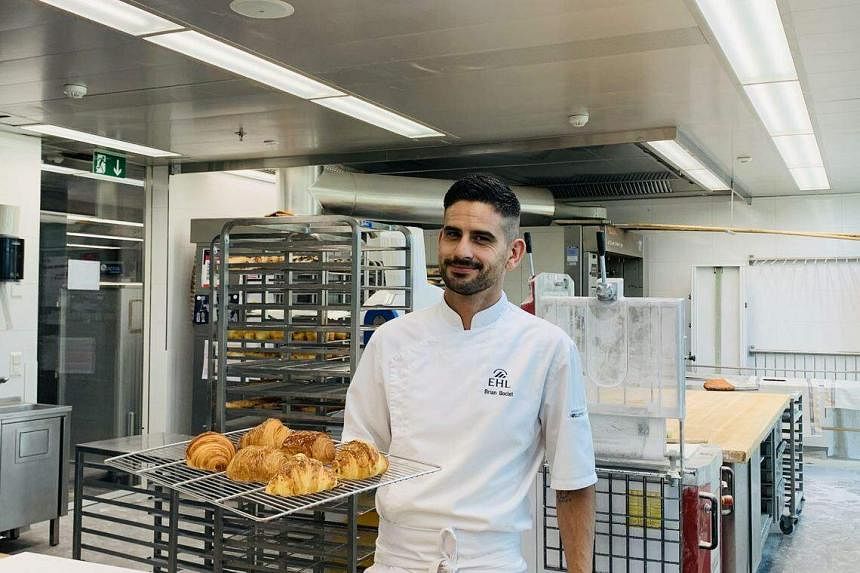
Each day is filled with encounters, which are made easier by the no-walls concept of the campus.
Our group sees the diverse student population intermingling and learning from one another in a fluid style, in line with the vision of the architects from Swiss firm IB.
And so the learning takes place beyond classrooms, in a show kitchen, fitness trail, sauna, organic garden and Michelin-starred restaurant, each encounter preparing the students for the real world.
